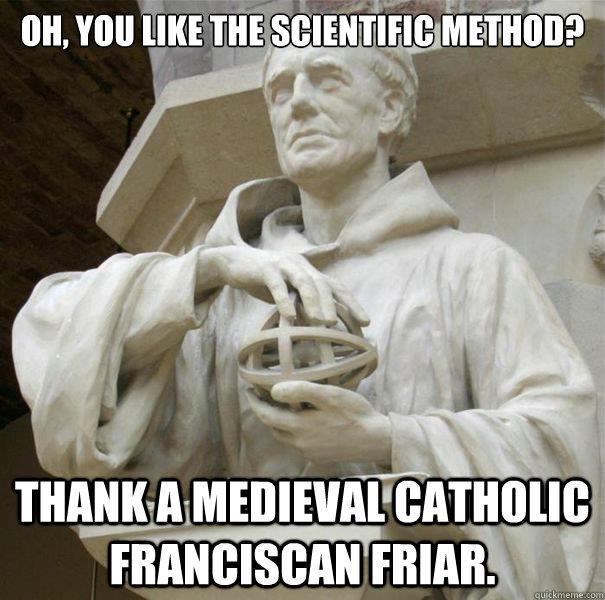Roger Bacon, a 13th-century Franciscan friar, philosopher, and scholar, stands out as one of the most remarkable figures in the history of medieval science. Often regarded as a precursor to the Scientific Revolution, Bacon made significant contributions to various fields, and his emphasis on empirical observation laid the groundwork for what is now known as the Baconian method.
Early Life and Education: Born around 1214 in Ilchester, Somerset, England, Roger Bacon joined the Franciscan Order and studied at the University of Oxford. His insatiable curiosity and keen intellect led him to explore a wide range of subjects, including languages, optics, alchemy, and astronomy.
Emphasis on Empirical Observation: At a time when scholasticism dominated medieval thought, Bacon championed a radical approach to knowledge. He argued that true understanding could only come from direct observation and experimentation, urging scholars to engage with the natural world. This emphasis on empirical observation laid the foundation for the Baconian method.
The Baconian Method and Novum Organum: The Baconian method, also known as empiricism, is a systematic approach to acquiring knowledge through observation and experimentation. Bacon believed that knowledge should be derived from sensory experience rather than relying solely on tradition or authority. His ideas foreshadowed Francis Bacon’s “Novum Organum,” a seminal work in the Scientific Revolution that formalized the scientific method.
Scientific Contributions: Bacon’s contributions to various scientific disciplines were ahead of his time. In optics, he wrote extensively on the properties of lenses and the anatomy of the eye. His work on the magnifying properties of lenses contributed to the development of eyeglasses. Additionally, Bacon explored the principles of sound, heat, and the rainbow, demonstrating a broad and interdisciplinary approach to scientific inquiry.
Encyclopedia and Perspectives on Future Discoveries: In his major work, “Opus Majus” (Great Work), Bacon presented a comprehensive overview of the knowledge of his time. He proposed the establishment of a universal science that would encompass all branches of knowledge, anticipating the interdisciplinary nature of modern science.
Legacy: Roger Bacon’s ideas were not widely accepted during his lifetime, and he faced criticism from some ecclesiastical authorities. Nevertheless, his work laid the groundwork for the scientific methods that would later characterize the Scientific Revolution. Bacon’s emphasis on empirical observation and systematic inquiry contributed significantly to the eventual shift from medieval to modern science.
Conclusion: Roger Bacon’s legacy endures as a testament to the power of curiosity and the pursuit of knowledge. His emphasis on empirical observation, recorded in the Baconian method, paved the way for a new era of scientific inquiry. Bacon’s contributions to various fields, coupled with his forward-looking vision of a universal science, continue to inspire scientists and scholars to explore the mysteries of the natural world.
 The Libertarian Catholic
The Libertarian Catholic
















